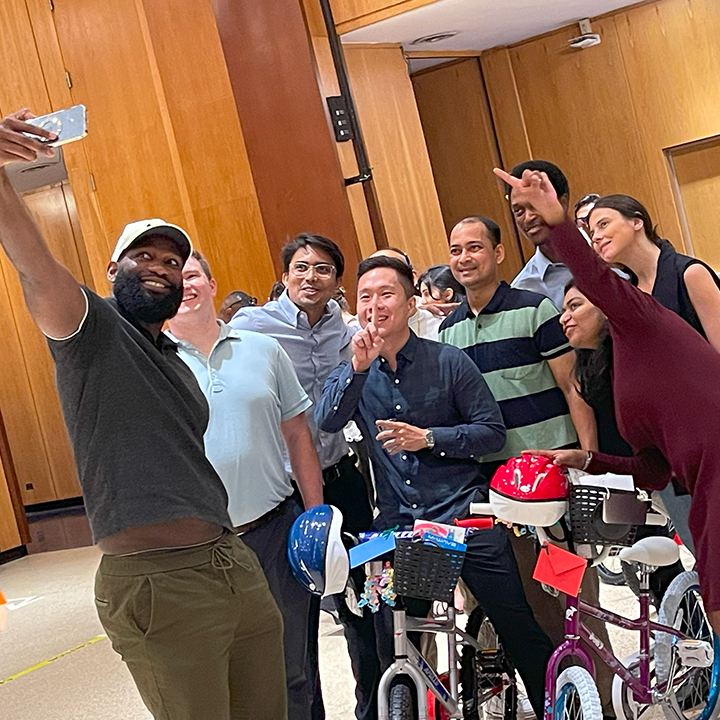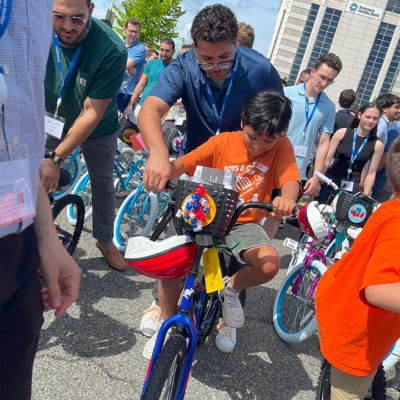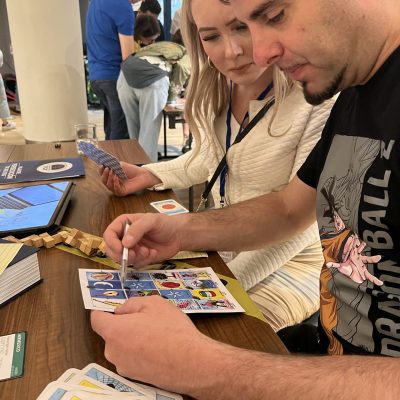Your Comprehensive Guide to Millennials in the Workplace
Every workplace is filled with people from all different backgrounds, walks of life, and generations. Learning how to manage and accommodate each of those different groups and generations is essential for success. For example, this guide is all about managing millennials in the workplace.
They’ve been talked about extensively as a generation. From their tech use and high levels of education to their supposed lack of work ethic, millennials in the workforce tend to spark conversation.
So let’s take a closer at the traits of millennials in the workplace and how to manage them, setting aside the negative stereotypes and assumptions in favor of useful information. We’ll look at the needs and challenges of millennials at work, and how you can better manage millennial employees.
Defining the Millennial Generation
Millennials were born from 1981 to 1996, meaning they range from 28 to 43 years old as of 2024. It’s worth noting, though, that these numbers vary slightly depending on the source, so don’t get too hung up on specific dates/ages. With that out of the way, let’s look at some characteristics of a millennial.
Considered digital natives, millennials grew up in a time of rapid and sudden technological change. Though they may have started out with dial-up and flip phones, they quickly adapted to the world of smartphones and social media. But unlike Gen Z (who have their own unique wants and needs in the workplace), they remember a time before smartphones and social media.
Stereotypes About the Traits of Millennials in the Workplace
There are plenty of stereotypes about the millennial generation in the workplace. While some might trend true—like their tech savviness—many of these assumed traits overlook the changes in society that contributed toward millennials’ development.
Let’s list some of the common stereotypes and look at which ones may or may not be accurate:
- Entitled behavior
- Hungry for praise
- Limited social skills
- Good with technology
- Poor work ethic
Aside from having a proclivity towards technology, all of these assumptions are negative—but are they true? Not really.
Millennials grew up and live in a very different world than older generations, and they aren’t afraid to make it known. But that in itself isn’t a bad thing.
Entitled Behavior
Are millennials entitled because they ask for many of the same things older generations were able to take for granted? There’s nothing wrong with asking for fair pay, affordable housing, work-life balance, and career growth.
Hungry for Praise
While many millennials in the workplace may be more upfront about their desire to be praised for their successes and wins, that’s a good thing. Positive workplaces should encourage praise and recognition, and there’s nothing wrong with asking for that.
Limited Social Skills
Many millennials grew up texting and chatting as a large part of their social interactions, and they tend to demonstrate higher emotional intelligence. This naturally leads to different social skills and preferences, but different doesn’t equal bad.
Plus, programs like TeamBonding’s People Skills Training can yield fantastic benefits for people of all ages. If you’re managing millennials in the workplace, social skills classes like these can help them communicate more similarly to other generations.
Good With Technology
As the first generation of digital natives, many millennials bring substantial tech skills to the table. This helps keep their teams flexible and can create mentoring opportunities for older generations to learn new software, apps, and tools with mentors from the millennial generation.
Work Ethic
Millennials are just as hardworking as anyone else. In fact, some research suggests that millennials actually work more than older generations, for better or for worse.
At the same time, they aren’t afraid to call out their employers for issues like a toxic work environment, unfair compensation, and poor treatment. They’ll work hard when they feel they are being respected and treated fairly.
Why Millennials Matter in the Workplace
All that talk about millennials in the workforce, but why do they matter? To start, millennials are currently the largest generation in the US labor force. According to Pew Research, 35% of all US workers are millennials.
With over a third of the workforce being millennials, they’re not a group you can ignore. Millennials enjoy independence and creative solutions, and they will work hard to find new ways to efficiently solve problems using their skills.
Millennials Encourage Healthy Work Environments
Millennials can also be a positive influence in the workplace. They want and expect a healthy environment with effective communication and fair treatment, and by speaking up about this, they help ensure that the work environment is positive.
Millennials Make Loyal Team Members
While millennials being job-hoppers is a somewhat true stereotype, they only do so when they aren’t being treated or compensated fairly. When you can engage and retain them, providing reasons to stay, they can be incredibly loyal and valuable team members.
Millennials Are Moving Up
Finally, it’s important to note the role millennials will play in the future. As more and more baby boomers age out of the workforce, millennials will continue to move up and take higher positions. They’re the future leaders of the workforce.
Millennials in leadership positions tend to prefer a teamwork approach, seek diversity, and emphasize fulfillment. They’re also good communicators with a work-focused mindset, and they’re more willing to speak out about areas of dissatisfaction.
What Millennials Want in the Workplace
You might be noticing a pattern; millennials can be incredibly hardworking and loyal employees who uplift their teams—if they have what they want in the workplace. So, what do millennials want?
While older generations might assume that millennials’ needs are unreasonable, they’re actually making fair requests if you stop to consider what they’re seeking.
Fair Compensation & Work-Life Balance
Above all else, millennials want two things: Fair compensation and work-life balance.
In other words: They want to be compensated fairly for their work, and they want to actually have a life outside of work. It’s reasonable to want a competitive, living wage for full-time work. It’s also reasonable to take the stance of “I work to live, not live to work.”
Opportunities to Advance
Millennials also want a path forward. They want opportunities for growth and professional development, and this can help drive innovation in the workplace. They don’t want to feel like they’re in a dead-end job; they want to feel like they’re valued.
Flexible Schedules
Things like remote work and work-from-home arrangements are very popular with millennials. They’re usually seeking this flexibility so they can maintain better work-life balance and mental health. This is even more common in our post-pandemic society.
Purpose & Responsibility
Another thing millennials seek in the workplace is purpose and corporate social responsibility (CSR). Millennials tend to be attentive to the world around them, acutely aware of injustices and inequality.
They want to feel like they’re part of something bigger than themselves and are actively making the world a better place. They also expect things like diversity and inclusion to be the standard.
Challenges Faced by Millennials in the Workplace
Now, let’s look at some of the challenges encountered by the millennial generation in the workplace. What are they coming up against that causes them to speak out?
Financial Challenges
The biggest challenge millennials face is financial, and this isn’t unique to them. Millennials and Gen Z have come up in precarious financial times (even if the stock market and GDP say otherwise).
Healthcare is frequently unaffordable, even with good insurance. Housing prices have skyrocketed compared to a few decades ago. Pensions have largely been replaced by 401k accounts dependent on the ever-fluctuating and gamified stock market.
All of this comes on the back of wages that have stagnated for decades while corporate profits and productivity reach all-time highs.
Mental Health & Wellbeing
Another big challenge is maintaining mental health and wellbeing. Millennials are much more conscious of their mental health, and—unlike prior generations—they’re willing to prioritize it over work. With the financial pressures listed above, it’s easy to see why mental health is a big concern for millennials.
Changing Technology
One last challenge faced by millennials in the workplace is the ever-changing nature of technology. Things like AI and automation are now disrupting the workforce in massive ways. Blue and white-collar millennials alike now have to contend with technology that may or may not take their job, adding one more worry to their list.
Adapting the Workplace for Millennials
Okay, time to shift to the important stuff: How can employers adapt to accommodate millennials? To get the obvious out of the way, you need to compensate them well. If not, they’ll likely go elsewhere. Moving beyond that, though, there are other ways you can get better at managing millennials in the workplace.
Company Culture
It helps to start with a millennial-friendly culture. Put a focus on things like employee wellness with wellbeing initiatives and creating a good work-life balance. Encourage effective communication, help them develop professionally, and treat them well. A good culture goes a long way in accommodating millennials.
Recognition
Be sure to recognize wins and provide constructive feedback when you’re managing millennials. They want to be acknowledged when they do well, and they want feedback so they can do better. It’s simple and it shows them you really care.
Team Building
Another good option is to invest in team-building events. An event like Build-A-Birthday or Just Roll With It is often perfect for millennials. These can help your team communicate and collaborate better, all while having fun and doing something good for the community.
Future Trends and Considerations
Before wrapping up, let’s take a quick look at future trends and considerations.
Millennials will continue to be a sizable portion of the workforce for some time. And as the years go by, more and more will be leaders, managers, and the like. Like it or not, millennials are here to stay, so it’s best to get to know them and learn how to work with them now.
Don’t forget about Gen Z, either—they currently range from age 12 to 27, meaning many of them have already entered the workforce. In a decade from now, Gen Z will be a sizable chunk of the workforce. And Gen Alpha will be there before we know it.
The introduction of younger generations into the workplace will never stop. Employers will always have to adjust and accommodate so they can keep a finger on the pulse, stay in touch with younger generations, and be ready to change with the times. Organizations that fail to do so will get left behind as the next generations lead the way.
Connect with Millennials Via TeamBonding
Millennials are a frequently misunderstood generation despite how often the stereotypes about them may come up. They’re a hardworking generation that simply expects to be treated with respect and compensated fairly. And since they make up over a third of the workforce, it’s important employers meet their needs.
To accommodate millennials in the workplace, employers can create an environment that encourages effective communication, employee wellbeing, professional development, and a healthy work-life balance.
Start connecting your team members with TeamBonding. We have over 25 years of experience with corporate events. Our catalog has numerous programs and activities perfect for connecting with millennial employees and creating the workplace they expect. It’s time to embrace the next generation—get in touch with us today!
Get more insights in our newsletter:
* every subscription supports charity!
Plays well with these activities.


 Unlock exclusive resources for better teams. Every subscription supports charity!
Unlock exclusive resources for better teams. Every subscription supports charity!
Create Your Free Account
Get exclusive access to new programs from the TeamBonding Lab, save your favorite ideas, and track your upcoming events.
Already have an account? Login













